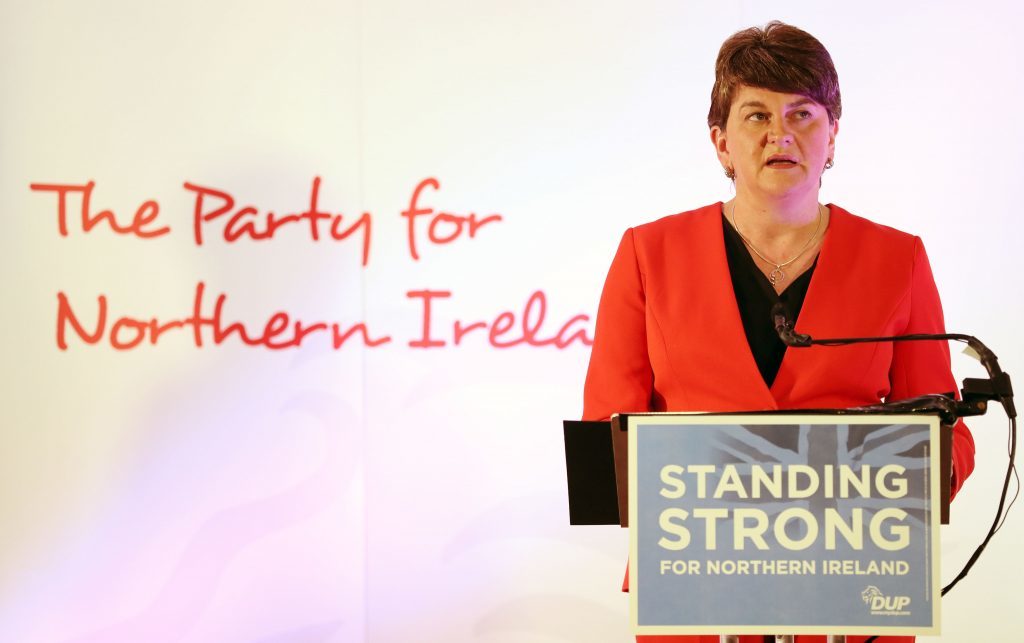
A former special adviser to DUP leader Arlene Foster has said he thought minutes had been taken of a key Renewable Heat Incentive (RHI) meeting in Northern Ireland.
A public inquiry at Stormont is examining how the decision was made to proceed with the botched green energy scheme without cost controls introduced in an equivalent subsidy project in Great Britain.
Mrs Foster and a senior civil servant have different recollections of a series of meetings on the issue while she was the powersharing minister responsible for RHI.
The ex-enterprise, trade and investment minister’s then adviser Andrew Crawford said civil servants usually wrote in a blue book during discussions.
He added: “There were always people there who were taking notes.
“I cannot remember an occasion when they stopped recording those notes. I believed notes were always taken by officials.”
The issue has been raised over a meeting between Department of Enterprise, Trade and Investment (DETI) official Fiona Hepper and former minister Mrs Foster about whether to proceed with RHI without cost controls introduced in Great Britain.
There was a difference of opinion between the two about the meeting and the head of Northern Ireland’s civil service, David Sterling, has said no minute was taken because the practice lapsed after devolution.
Mr Crawford said the first time he learned it had ceased was during the public inquiry into the botched green energy scheme which he appeared before on Wednesday.
The RHI ended up paying out more than it cost to fuel wood-burning boilers and led to the collapse of powersharing following a fall out between Sinn Fein and the DUP.
At the time it was being launched Mr Crawford said he and the minister were concentrating on cutting energy costs for large users, building an interconnector carrying power between Northern
Ireland and the Republic and the single all-island energy market.
He said: “We probably were not as focused on it (RHI) then as we could have been and because of that we were accepting the advice that was coming up from officials.”
He said if the key documents were brought to the minister’s attention they would have paid closer scrutiny.
“I would like to believe that we would have taken a different direction.
“It certainly would have raised our antennae. We would have been more concerned about the issues.
“I believe if they had been brought to our attention none of us would be in this room now.”
The public inquiry was told he had been characterised as wanting to keep the massively overspending scheme open in mid-2015, which he felt was unfair and ran contrary to what he was doing.